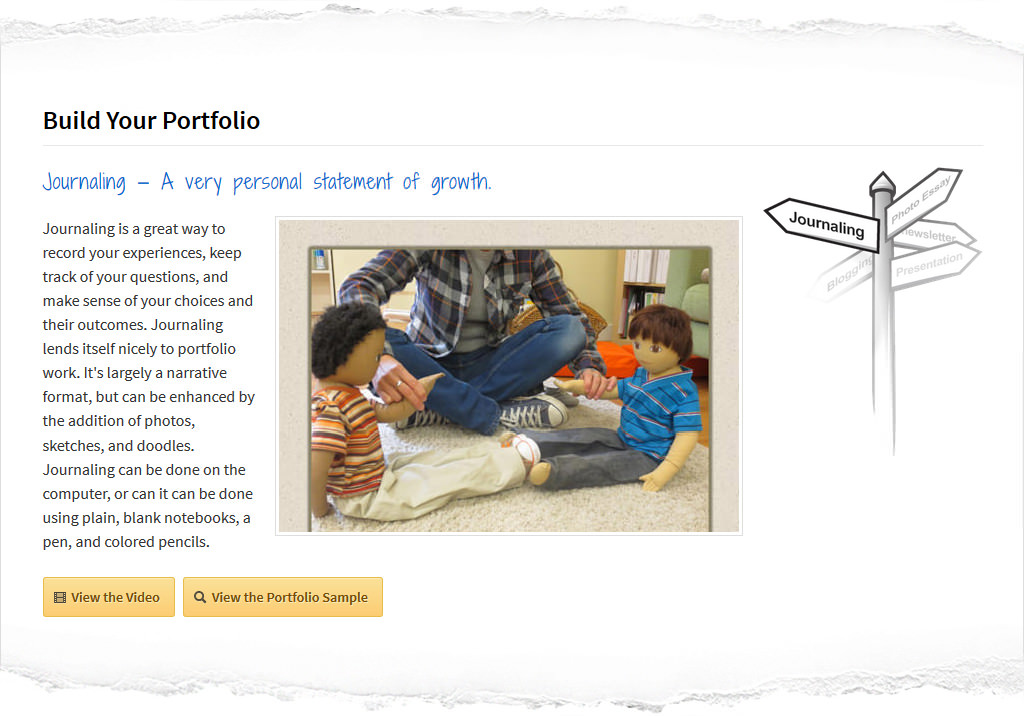Start with yourself.
CompSAT provides you with many tools to help you examine the personal and professional experiences, values, and beliefs that guide you as an early childhood educator. Your everyday practice with children and families comes, first and foremost, out of who you are as a person. Before diving into the competencies, we invite you to start with yourself — the key to unlocking your potential. Included in every module, there is a Key to Reflection and Inquiry called Know Yourself. We suggest you always begin with this Key — a beginning that will help you make the most of your CompSAT journey.
Videos set the stage for learning.

Each competency begins with a set of videos that address common, yet sometimes touchy or difficult topics that practitioners experience everyday in their work with young children and families.
The first video you will find in the competency is always the Invitation. Following the Invitation is a video that includes the Keys to Reflection and Inquiry, and the CompSAT protocol, which offers you a way of thinking about your work. Additional videos related to each vompetency can be found in the playlist below the video player.
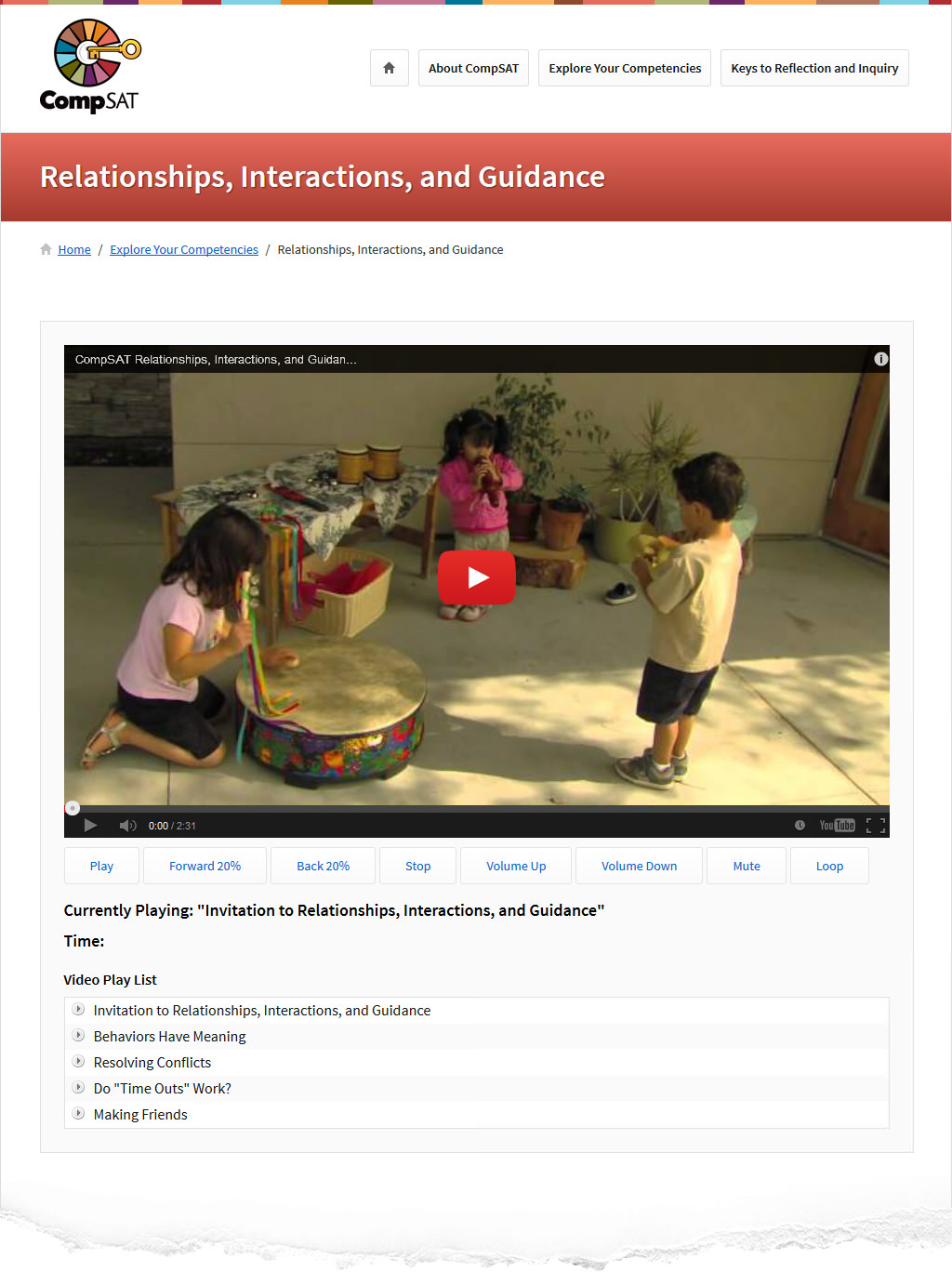
Get an overview of the competency.

Below the video module you will find a competency pie chart along with a brief introduction extracted from the official California Early Childhood Educator Competencies. Below it, you are able to to download the CA ECE Competencies and watch a video overview of the competency. Watch the overview video to familiarize yourself before you explore other areas.
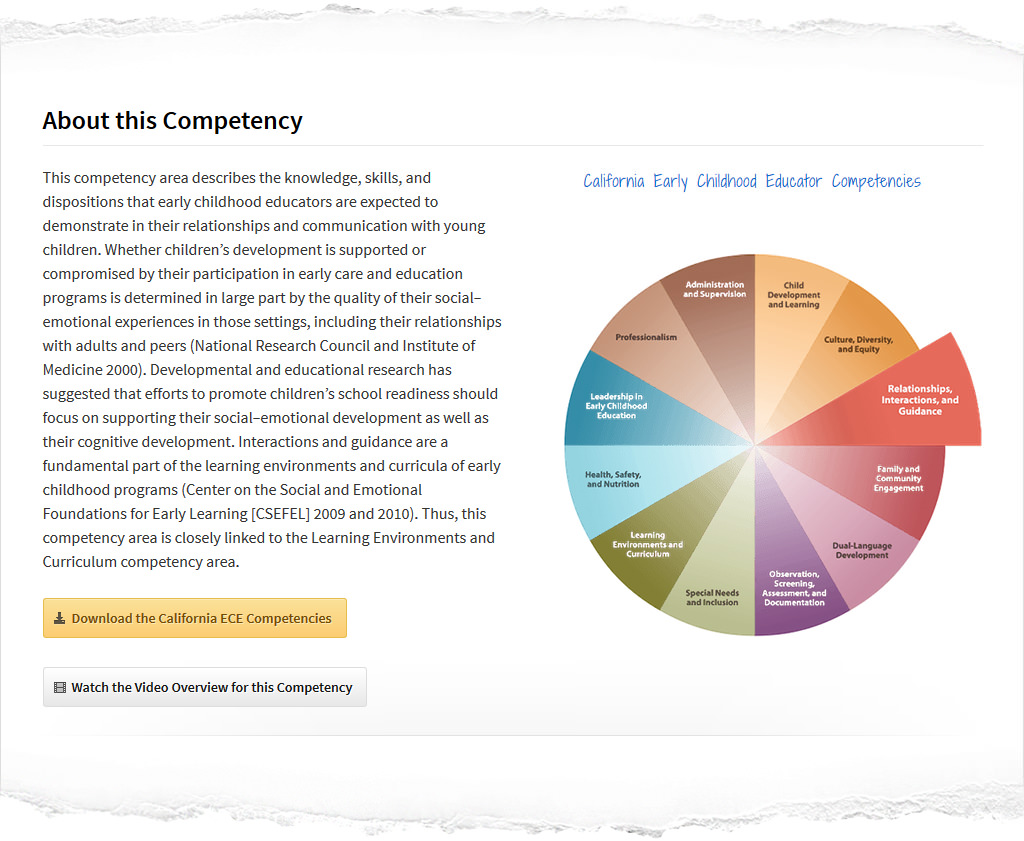
Questions, dispositions, and outcomes define the focus.

CompSAT provides Framing Questions in each competency to help you think about major themes. Framing questions provide you with a starting point for investigation. As you explore each competency, add your own framing questions for issues you want to further examine.
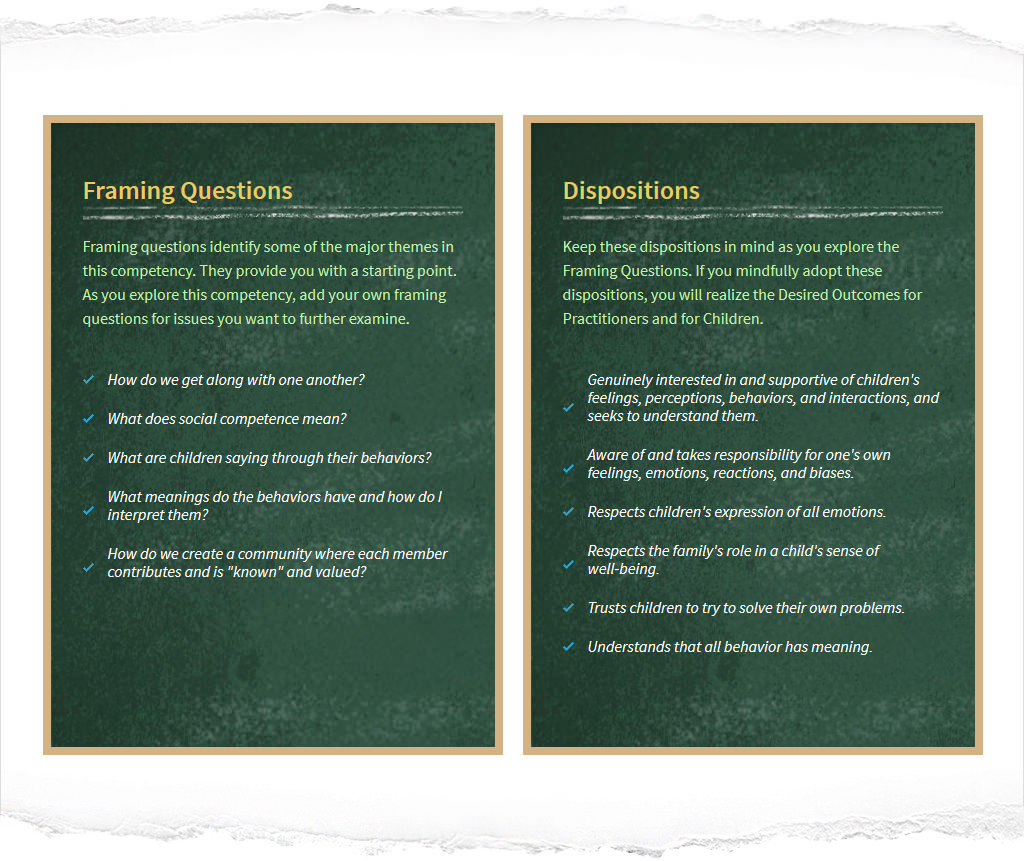

You will find the California ECE Competencies Dispositions next to the Framing Questions. Dispositions "focus on the attitudes, values, approaches to learning, and motivational factors that contribute to an individual's overall development in a competency area."
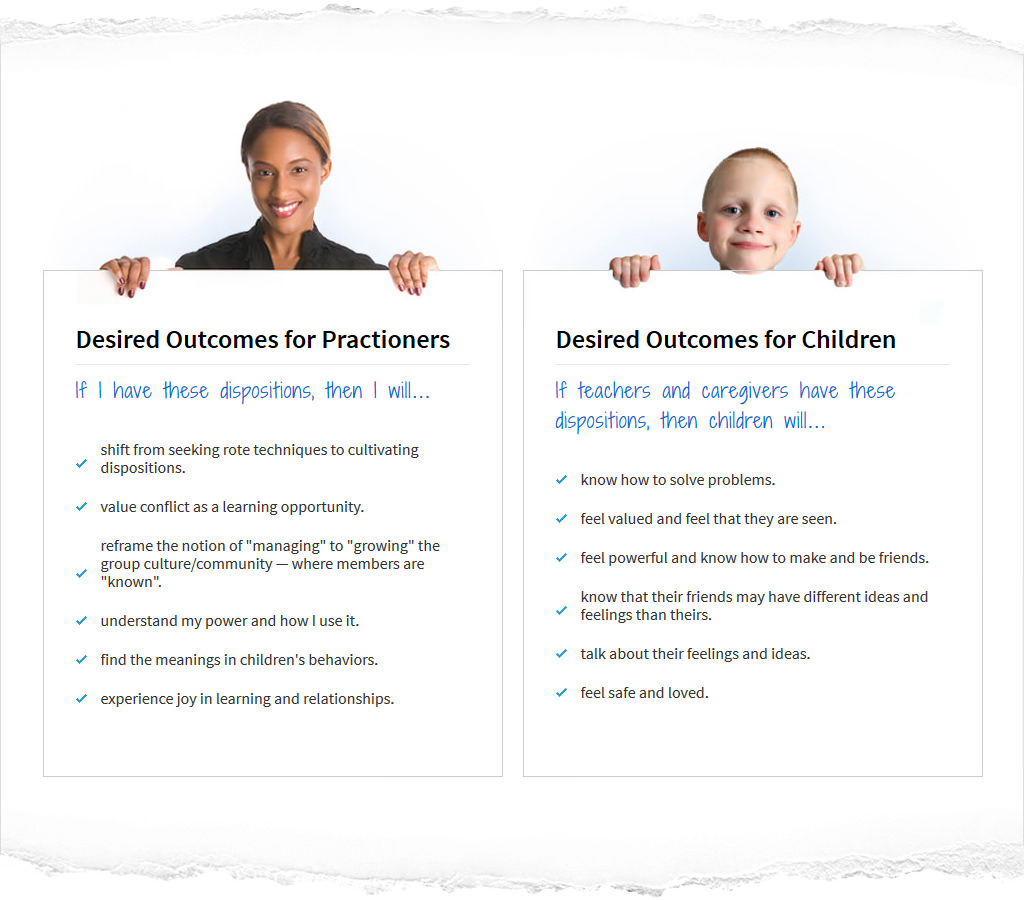
Keys to Reflection and Inquiry set you on the path to change.

In each competency, you'll find the Keys to Reflection and Inquiry. The Keys offer a protocol — a way to think systematically about your practice. Each Key offers questions and activities that ask you to reflect deeply and take actions to improve and refine your practice. They help you assess where you are now in your knowledge, skills, and dispositions, where do you want or need to be, and how to get there.
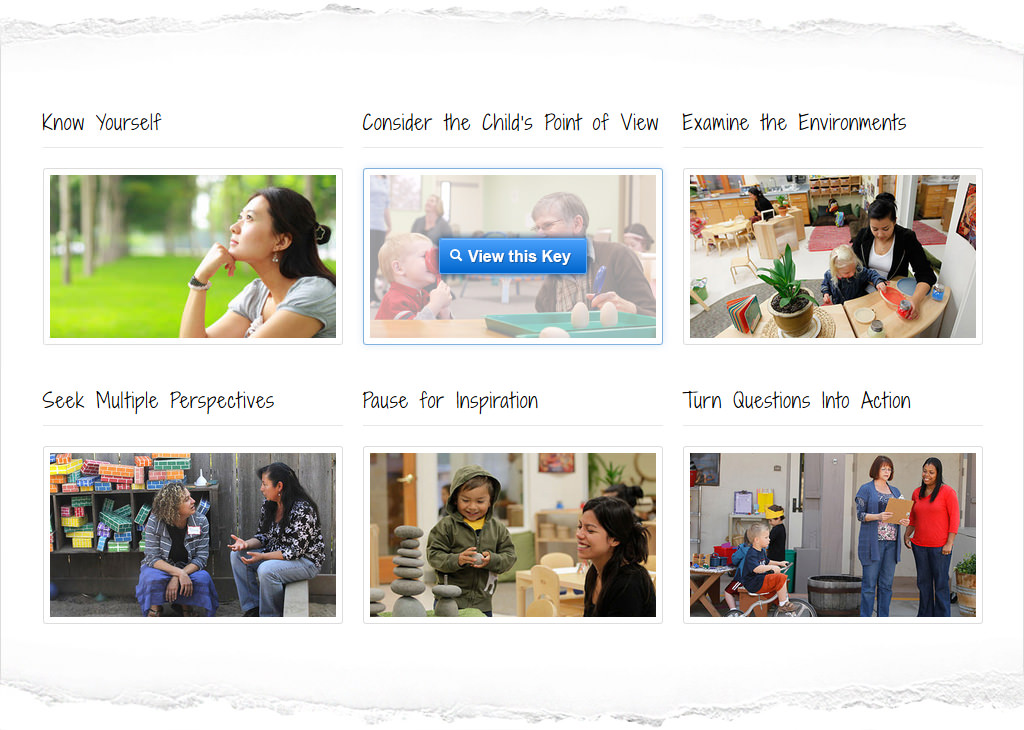
Your professional portfolio sets the standard.

Reflection and self-assessment go hand-in-hand with documentation of effort and outcomes. Real learning results from taking action, assessing results, reflecting on those actions and results, and planning for professional growth. Your portfolio is a tool for capturing your learning with meaningful artifacts through the process of reflection. CompSAT provides a Portfolio Guide (on the homepage), and a variety of sample portfolio segments in each competency inspire you and try out for yourself.
